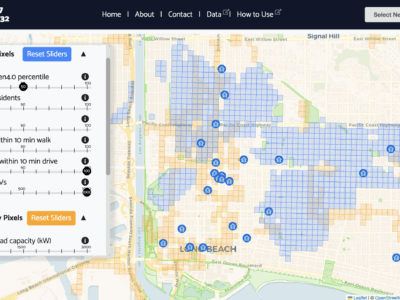Should Climate Advocates Fight School Board Elections?
Climate advocates might take a lesson from one of the most significant political movements of the last four decades: evangelical Christians.

Why have climate advocates failed in creating political support for significant climate policy? Amy Luers thinks she knows. In her recent piece, Rethinking US Climate Advocacy, her abstract states:
It is time to reassess climate advocacy. To develop a strategy for philanthropy to strengthen climate engagement, I interviewed over 40 climate advocates, more than a dozen representatives from the foundation community, and a dozen academics. My assessment led me to conclude that climate advocates have focused too narrowly on specific policy goals and insufficiently on influencing the larger political landscape. I suggest four ways to improve climate advocacy: 1) Increase focus on medium and longer-term goals; 2) Start with people and not carbon; 3) Focus more on values and less on science; and 4) Evaluate what works and share what we learn. To accomplish these strategies, social scientists and advocates must work together to build a culture of learning. Meanwhile, philanthropy must empower experimentation and incentivize knowledge sharing.
I confess that much of this seems to be boilerplate. After all, who is against evaluating what works and sharing what we learn? “Working together to build a culture of learning” seems to me to be so much consultant pablum. Still, Luers’ reference to “medium and longer-term goals” did get me to thinking about particular political strategies. Specifically, climate advocates might take a lesson from one of the most significant political movements of the last four decades: evangelical Christians.
Evangelicals have made enormous strides in recent decades for many reasons, but one of the most important has been their involvement in local politics, specifically local school boards. Melissa M. Deckman’s important book, School Board Battles: The Christian Right in Local Politics, shows how they do it.
At first blush, local school boards seems a rather misplaced location for climate political efforts, since climate change is the quintessential global problem. But keeping the focus on “medium and longer-term goals” in mind, it actually makes sense,
1) Most prominently, climate change is actually a scientific phenomenon. It can be taught as a scientific issue. There are loads of great programs for teaching about climate at the elementary, middle, and high school levels. That means that there is an election program that climate-friendly candidates can run on that is relevant to school board elections. That, in fact, can be the campaign: teach climate science in the schools.
2) Local politics tends to be somewhat less ideological than at the state and national level. People can be reached on issues before it has become so politicized that people’s partisan filters block it out. Many conservatives on the local level are not hostile to climate change arguments, and given the co-benefits that come from proactive climate policy (less local air pollution and sprawl, use of municipal waste for energy), can be often be induced to support it.
3) Politicians at the state and national levels often start at the local level. Cultivating them early helps to educate them early. I remember once talking with a pro-Israel activist from rural South Dakota, who told me that in the mid-70’s, he found a young talented politician who impressed him so much that he arranged for a free trip to Israel for him, where he made connections and learned about the Middle East for the first time, adopting (not surprisingly) a pro-Israel viewpoint. The politician’s name was Tom Daschle.
A strategy focused on local school board battles might seem frustrating for climate advocates, because it is so long term, and we need to take action now to mitigate and adapt to climate change. But given the failure of climate policy at the Congressional level, it might wiser to focus first on the regulatory process but second on local politics, where the next generation of climate advocates might be able to succeed where this one, so far, has failed.







Reader Comments